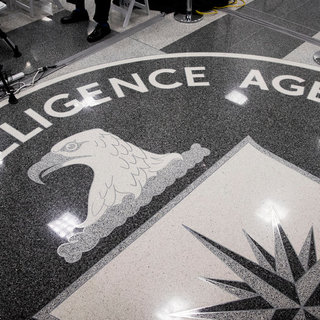September 29, 20197 min read, 1489 words
Published: September 29, 2019 | 7 min read, 1489 words
AdvertisementWASHINGTON — The White House learned that a C.I.A. officer had lodged allegations against President Trump’s dealings with Ukraine even as the officer’s whistle-blower complaint was moving through a process meant to protect him against reprisals, people familiar with ...
CRITIC REVIEWS
Financial Incentive
September 29, 2019
The New York Times outed the Ukraine call whistleblower with this report and revealed he is a CIA employee, who once worked in President Donald Trump's White House.
The whistleblower's attorney pleaded with the Times to not publish this information. Yet, on the same day that Trump suggested he would like to go back to the days of "spies and treason" and execute the whistleblower, the Times went ahead and published this report.
The report is a kernel of a news story on the whistleblower that lacks fleshed out details. This is likely because the Times was concerned with competitive pressure as a news organization and wanted to be the first to report on the whistleblower's identity. But in publishing first, the Times arguably violated the anonymity of a source, even though he was not the Times' source.
The Times has made weaker justifications for granting anonymity to intelligence professionals and Democratic Party officials so that they could express their opinions on policies or political developments without consequence. However, here we have the executive editor Dean Baquet suggesting this information had to be public so his credibility could be defended.
The credibility of the whistleblower was dependent on the allegations in the complaint alone. It does not matter who he is.
Unfortunately, this is not the first time this happened. The Times did this to CIA whistleblower John Kiriakou, who was the target of a leak prosecution. They did not want the New Yorker to publish a feature before them. They published a story on him before his sentencing, violated an agreement they had with Kiriakou, a source, and jeopardized his future. He very nearly lost his plea agreement with the government because of the Times.
September 29, 2019
PUBLIC REVIEWS
Investigative
October 15, 2019
(This review relates to THIS article, not the earlier controversy of whether the NYT disclosed the whistle-blower's identity in saying they were a CIA employee. I leave it to other readers to draw inferences from the main reporting here that the CIA's General Counsel first ran this up the line to the White House.)
The article adds some very useful points to the question. I was particularly interested that the Chief Counsel of the CIA had alerted AG Barr shortly after first seeing an anonymous complaint, and that he distanced his official role from the concern, at the same time he was providing Mr. Trump with political guidance of how to handle the story.
Despite my overall trust in the story, there are details that I don't see carefully attributed. For example, “[The whistleblower] did not listen directly to the July call” does not seem to be independently verified, and could be part of the WB's own cover to maintain anonymity. And it would have been more accurate to source it that way. There are also claims that the WB went to HPSCI Chairman Schiff sometime in the general timeframe, that go unmentioned and bear on the disclosure.
October 15, 2019
Political Agenda
October 21, 2019
Here is an instance where officials outside of the NYT recommended that the identity of the whistleblower remain anonymous but NYT published this report which then continued to narrow down possible facts about said whistleblower in attempt to find out who he is.
It largely seemed like this decision was up to the executive editor of NYT so there may be other factors involved.
October 21, 2019
Financial Incentive
September 30, 2019
This article reads like a save-face defense of the NY Times' decision to reveal the whistleblower, which many see as simply a way to gain more clicks, notoriety, and to win the petty competition they have with the Washington Post and other outlets to be the first to break such stories. I believe this article, and the original article that outed the whistleblower, are symptoms of the click-based profit motive in news today. In this case, it could cost an individual his freedom and cost the world more information that might have been released if his identity had remained unknown.
September 30, 2019
